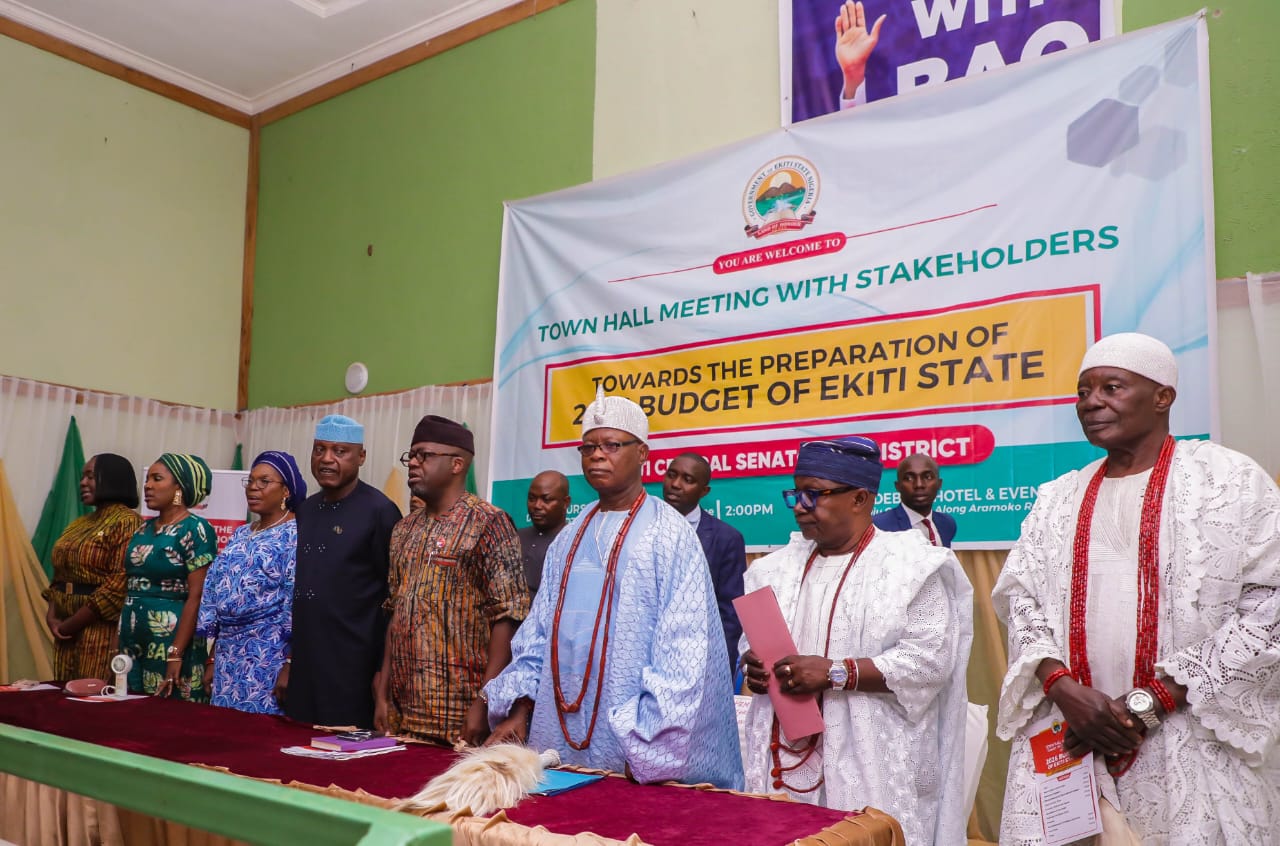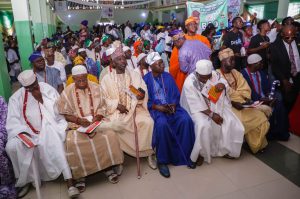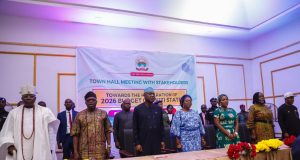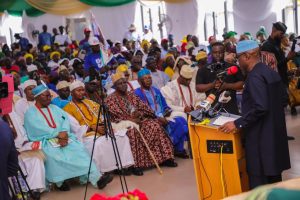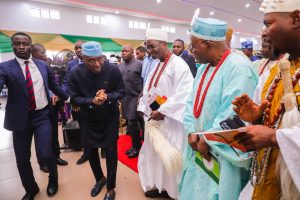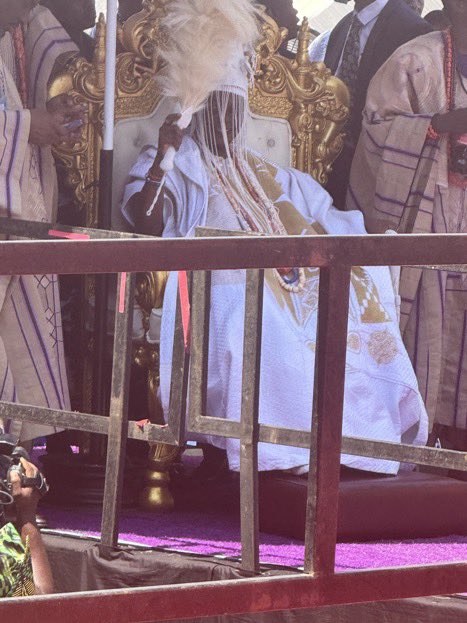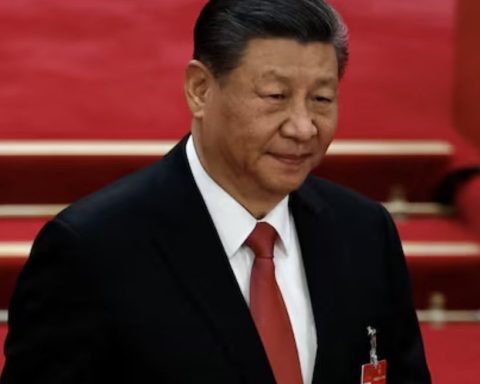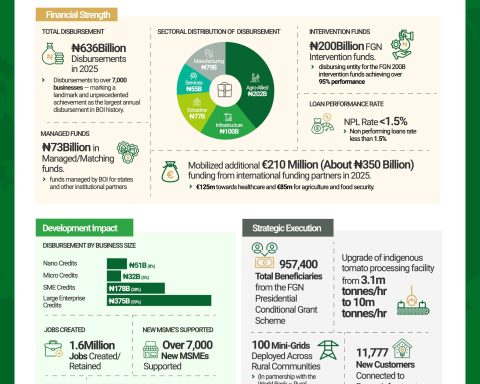Ekiti State Governor, Biodun Oyebanji, has mandated all local government chairmen in the state to conduct citizens’ engagement before preparing their budgets, emphasizing that projects and initiatives should reflect the real needs of communities.
The directive was issued on Thursday during the Town Hall Meeting and Citizens’ Engagement with residents of Ekiti North and Central Senatorial Districts, in preparation for the 2026 State Budget.
Speaking at the event held in Otun Ekiti, Governor Oyebanji stressed that local government leaders should emulate the state government’s approach of connecting with citizens at the grassroots.
Join our WhatsApp Channel“The 2026 budgets of the local governments should not be prepared without consultation with people living in such local government areas,” he said. “This is very important, and I want our council chairmen to do what we are doing in terms of citizens’ engagement for budget preparation.”
During the forum, representatives from the five local government areas in Ekiti North – Ido/Osi, Moba, Ilejemeje, Oye, and Ikole- submitted requests covering township roads, inter-community roads, electricity, potable water, hospitals, schools, ambulances, security, empowerment programs, and other community priorities.
Residents of the five councils in Ekiti Central – Ijero, Efon, Ekiti West, Irepodun/Ifelodun, and Ado Ekiti – similarly tabled their requests. Artisans and persons living with disabilities also made submissions for inclusion in the 2026 budget.
Ekiti 2026: Gov. Oyebanji Submits APC Nomination Forms, Seeks Fresh Mandate to Consolidate Projects
Governor Oyebanji urged local government chairmen to use improved allocations to provide infrastructure such as transformers, stressing that local governments are capable of attending to many grassroots needs independently.
He specifically charged Hon. Segun Ojo, Chairman of the Association of Local Governments of Nigeria (ALGON) and Ekiti East LGA Chairman, to ensure fellow council leaders adopt the citizens’ engagement process before budget preparation.
The governor reiterated his commitment to connecting with the grassroots since assuming office in 2022. “This meeting is not a waste. No budget year has passed without implementing requests from our communities. While not every request has been fulfilled, a significant number of projects are visible across the state,” he said.
In addition, Governor Oyebanji promised to allocate a portion of the 2026 Budget to provide credit facilities for artisans and the informal sector, aimed at boosting the grassroots economy.
He expressed concern over unpaid micro-credit loans from previous administrations, which amounted to over N2 billion, and highlighted the success of his administration’s commercial agriculture initiatives, which have increased income for young farmers and reduced crime in rural areas.
The governor also called on residents to register as voters and obtain their Permanent Voter Cards (PVCs) ahead of the forthcoming governorship election, expressing confidence that his administration’s performance over the past three years would earn the support of the electorate.
The town hall meetings were attended by key state officials, including Deputy Governor Chief (Mrs.) Monisade Afuye, Deputy Speaker of the House of Assembly Mrs. Bolaji Olagbaju, Head of Service Dr. Folakemi Olomojobi, traditional rulers from both senatorial districts, local government chairmen, community leaders, and representatives of interest groups.
Governor Oyebanji’s directive underscores a commitment to transparent, accountable, and participatory governance in Ekiti, ensuring that budgets are aligned with citizens’ needs and priorities.
Amanze Chinonye is a Staff Correspondent at Prime Business Africa, a rising star in the literary world, weaving captivating stories that transport readers to the vibrant landscapes of Nigeria and the rest of Africa. With a unique voice that blends with the newspaper's tradition and style, Chinonye's writing is a masterful exploration of the human condition, delving into themes of identity, culture, and social justice. Through her words, Chinonye paints vivid portraits of everyday African life, from the bustling markets of Nigeria's Lagos to the quiet villages of South Africa's countryside . With a keen eye for detail and a deep understanding of the complexities of Nigerian society, Chinonye's writing is both a testament to the country's rich cultural heritage and a powerful call to action for a brighter future. As a writer, Chinonye is a true storyteller, using her dexterity to educate, inspire, and uplift readers around the world.


